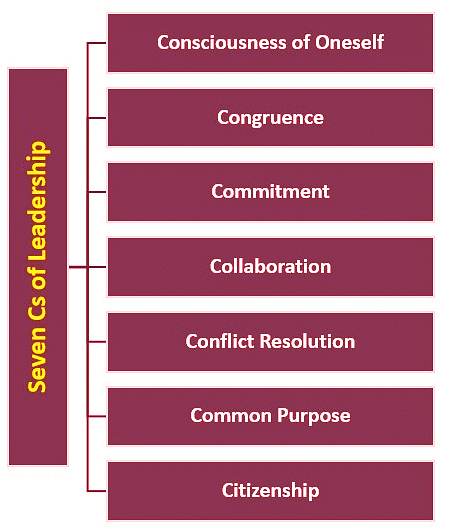UPSC Exam > UPSC Notes > Psychology for UPSC Optional (Notes) > Group Decision-Making and Leadership for Social Change
Group Decision-Making and Leadership for Social Change | Psychology for UPSC Optional (Notes) PDF Download
| Table of contents |

|
| Introduction |

|
| The Role of Leadership in Group Decision-Making |

|
| Leadership's Impact on Social Change |

|
| The Seven Cs of Leadership |

|
Introduction
In today's world, tackling complex issues such as climate change, religious tensions, and atomic warfare requires effective group decision-making and leadership. Collaborative decision-making, where a group of individuals collectively chooses the best course of action, offers superior results compared to individual decision-making. This article explores how group decision-making and leadership contribute to social change and addresses the challenges faced in this process.
The Role of Leadership in Group Decision-Making
To ensure an orderly collective decision-making process, a strong leader plays a crucial role. Successful leadership enables individuals to contribute their unique perspectives and abilities, voice concerns, take initiative, make informed choices, collaborate with others, and share responsibility for the team, organization, or community's well-being. Leaders must address challenges such as groupthink and social loafing to foster effective decision-making.
Leadership's Impact on Social Change
The social change model of leadership, developed by a group of higher education professionals in 1994, revolutionized leadership development. This model emphasizes personal awareness and the cultivation of leadership skills, presenting leadership as a process rather than a position. It focuses on three key areas:
- Personal Awareness: The model encourages individuals to understand themselves better, appreciate their beliefs, philosophies, and goals, and develop a deep sense of self-awareness.
- Abilities Required to Lead: By inspiring leadership skills, the model aims to foster collaboration and encourage every person to become a leader. It recognizes that leadership is not limited to specific positions but can be practiced by anyone.
- Transformation: The model promotes the idea of bringing about transformation at various levels. It considers an individual's perspective, the collective viewpoint of a team, and the broader impact on the community. Service activities aligned with social aims are central to this transformation.
The Seven Cs of Leadership
The social change model of leadership encompasses seven guiding principles, known as "the seven Cs of leadership."
 These principles are integrated into the model's domains and contribute to effective leadership:
These principles are integrated into the model's domains and contribute to effective leadership:- Consciousness of Oneself: Self-consciousness involves being aware of one's beliefs, values, attitudes, and motivations for action. Elevating awareness among others is crucial for successful leadership.
- Congruence: Acting in alignment with one's core values, beliefs, and priorities forms the foundation of congruence. It is an essential element of self-awareness.
- Commitment: Leadership thrives on the collective psyche and dedication of individuals and groups. Commitment requires introspection, dedication to a cause or group, and belief in the value of one's actions.
- Collaboration: Effective leadership fosters collaboration, encouraging teams to work together beyond individual needs. Open discussions about beliefs and ideals contribute to collective decision-making.
- Conflict Resolution: Resolving conflicts openly and honestly requires a high level of trust among participants. Recognizing that conflicts can serve a purpose and aligning them with overall goals is essential.
- Common Purpose (Shared Aims): The expression of a shared purpose by all group members actively promotes unity and aligns with changing goals and values in society.
- Citizenship: Good citizenship is emphasized at all levels of the model. Each level encourages individuals to engage in community service and contribute to the well-being of the larger community.
Conclusion
Successful organizations prioritize effective group decision-making, allowing members to maximize their skills and work towards a shared objective. In the early stages of a group's development, the focus should be on achieving transformative change. Trust, respect, and cooperation within the group are key factors for success. By embracing the principles of group decision-making and leadership, we can create a world where everyone has a role to play in effecting positive change and where everyone's rights are protected.
The document Group Decision-Making and Leadership for Social Change | Psychology for UPSC Optional (Notes) is a part of the UPSC Course Psychology for UPSC Optional (Notes).
All you need of UPSC at this link: UPSC
|
160 videos|215 docs
|
Related Searches



















